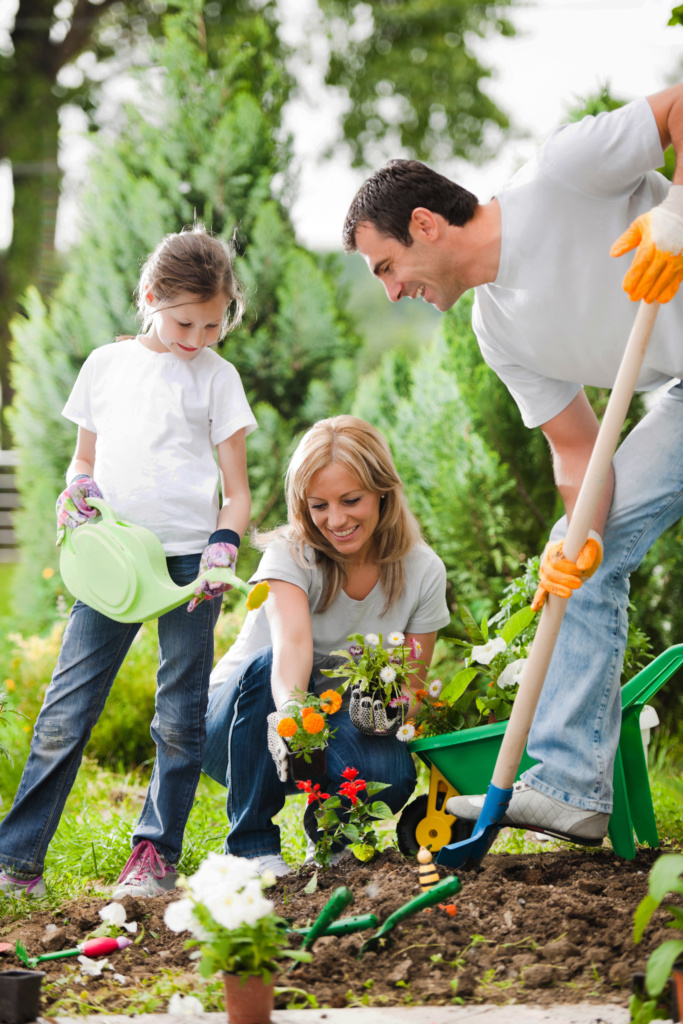Boredom Busters: Engage Your Kids This Summer
Article by | Caitlin Curbello-Rodriguez
It’s that time of year again; summer! Chances are your children will be around the house with nothing planned to occupy their time. An empty schedule sounds almost fictional, right? Sure, your children may have a summer camp here, an activity there – but what do you do with the REST of their summer days?! Although many parents will let their children sleep the days away, or spend their time glued to the t.v. – there has to be something more enriching to do. We have some excellent ideas on how to keep your kid engaged and develop important life skills that will pave the way to self-sufficiency. No more couch potatoes and the popular “I’m bored!” this summer!
Reading Challenge
Instead of giving in to your kid’s plea of, “five more minutes!” or “one more episode!” issue them a reading challenge. Buy your child several age-appropriate books throughout the school year (new or secondhand), visit a local library weekly, or purchase e-books that can be used on devices such as iPads. When summer rolls around establish a rule that your child must read for at least a half-hour on weekday mornings before doing anything else. It’s a reasonable timeframe to sit and focus on reading, and may capture their attention enough to where 30 minutes becomes hours!
Tech Time-Out
Something else to consider; restrict the use of tech devices such as phones, tablets or t.v. in the morning. Yes, you may be using a Kindle or iPad for the reading challenge, and that’s fine. Try putting up cellphones or other distracting devices until after the reading challenge is done. Children tend to pick up on parent’s habits, so you may have to pause the technology, too.
Practical Life-Skill Activities
In the past, home economics courses were more present in school curriculums. Learning to take care of yourself and necessary day-to-day tasks are crucial for independence as an adult. These activities are great ways to connect with your children while teaching important skills. Although there are MANY practical skills you can introduce to your child (keeping their age in mind), we’ve only included a few of the basics here. Remember! These tasks should always be performed under adult supervision.
Gardening / Yard Maintenance
For young children, let them help pick out what type of flowers or plants to put in your garden – you can help by explaining what plants thrive in your area and why. They can help plant and water the plants with you. Perhaps try a vegetable garden – they’ll love reaping the rewards of caring for things that put food on your table! Once your child is older and able, you can extend their responsibilities to mowing the lawn, trimming tree branches and pulling weeds. Let them be a part of beautifying your home – proudly showing off their hard work. Remember, work alongside your child; they’ll be more receptive with a teammate and guidance provided by you.
Household Chores / Routine Maintenance
Again, please keep in mind your child’s age and ability. Cleaning together promotes teamwork, cleanliness and even time management. The sooner they have their chores done, the sooner they can move on to “free-time”. Divide these chores into daily, weekly and monthly segments as to not overload them. As they get older, “promote” them to more sophisticated chores – they’ll be proud to be trusted to accomplish more complex tasks. At an appropriate age, it’s beneficial to begin showing children how to perform routine home and auto maintenance; changing the different fluids in your car, changing a tire, changing a home air filter, or how to build a shelf. These are all small things that can contribute to your child’s self-sufficiency.
Shopping, Preparing & Cooking for a Meal
This is a fun way to bond and develop practical skills! Task your child to create a shopping list and come shopping with you. Show them how to do identify sales and coupons or pick the best ingredients. Explain the different steps for preparing a meal and its ingredients, for example; how to safely thaw meat, chop and sauté vegetables, boil noodles, and food temperature safety. Measuring ingredients is a bonus to help children with math, too! Help them discover the different uses of kitchen appliances and how to safely operate them. For younger children, you may try recipes that require less ingredients and appliances (yogurt parfaits, salads, etc.).
Finances / Budgeting
Grocery shopping is a great way to help teach children about money management, but there are more ways to expose them to this topic. Although it may seem drab, invite your child to watch you balance your checkbook. They start to understand the concept of bills, due dates and being aware of their financial standing. Again, a 4-year-old may not benefit from this as much as an 8-year-old but it is something to consider as they mature. Give your child an allowance that they must learn to manage in order to get what they want. If their allowance runs out and they want the newest toy when it’s not a birthday or Christmas, they’ll start to learn that money does not grow on trees.
Sewing, Re-decorating, Writing. Get Creative!
Bring out the creativity! Sewing is a skill that comes in handy when you least expect it. Child tears their jeans? Loses a button? Eventually, kids could patch that up themselves! Re-decorating a room is also a powerfully creative avenue. Let your child help pick out the colors of new throw pillows, or decorate their own rooms! It’s a fun bonding experience to share with them, and allows them to openly express themselves in their own space. Do mad libs, designate some time during the day to write journal entries, short stories or crack open a coloring book with your child! They’ll develop a creative voice and learn to communicate their thoughts clearly through reading and writing regularly.
Engage Your Children
These are only a few suggestions on how to “bust the boredom” this summer or any time of year, really! The end goal is this; keep your children actively developing new skills and exposing them to new interests or creative outlets. That means participating in activities with them. You are your children’s first teachers – they build their foundation around what you give them. Every child is different, so you may have to get creative to keep them engaged – but it’s worth it when these activities translate into a well-rounded, independent person. You may see this as a list of chores – and some things are – but they are all things that your child will encounter at some point in their lives. Help them be ready for it while making memories with them!



